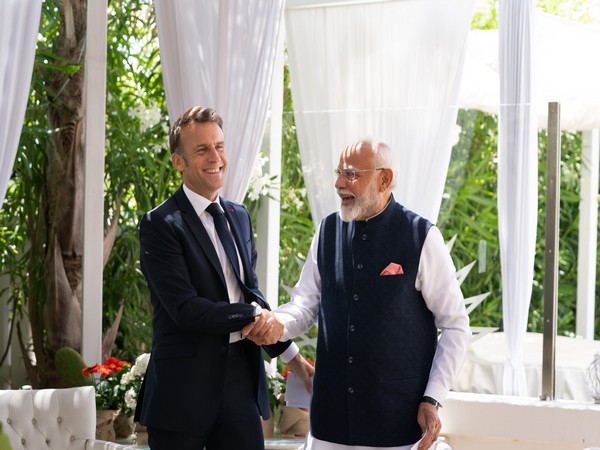France's Political Turmoil: National Rally and Macron's Battle for Economic Stability
France's far-right National Rally is leading in polls for upcoming parliamentary elections, challenging President Macron's centrist alliance. RN leader Bardella promises to review public finances and cut company taxes, while Macron's camp warns of economic instability and debt risks from RN's high-spending plans.

France's far-right National Rally (RN) hit back on Thursday at charges from opponents that its spending plans would crash the economy, while President Emmanuel Macron's centrist alliance said it was the only bulwark against financial mismanagement. The nationalist, anti-immigrant RN is leading in the polls ahead of a snap parliamentary election on June 30 and July 7, with a newly formed alliance of left-wing and environmentalist parties in second place and Macron's camp trailing far behind.
Macron's shock decision to call the election after his party was trounced by the RN in European elections threw French politics into turmoil and caused the euro and French stocks to tumble and France's borrowing costs to rise. RN leader Jordan Bardella, who could be prime minister if the party wins an absolute majority, sought to assuage fears about its high-spending plans during an appearance before the Medef, France's leading employers' group.
"I've understood that I need to reassure people," he said, pledging that if in government he would launch an audit of public finances in order to gauge his margin for manoeuvre before deciding on how far and how fast to go with reforms. Bardella said a pledge to lower the retirement age from 64 to 60, after Macron faced down months of street protests to raise it to that age, would apply to people who began work aged under 20.
His government would introduce a revised 2024 budget over the summer, he said, and measures would include cutting production taxes on companies. Bardella said the European Union should reduce its spending and France should cut its contribution to the bloc. He also talked about addressing fiscal loopholes that allowed highly profitable companies to avoid tax.
Macron's camp portrays both the RN and the new left-wing bloc, the Popular Front, as profligate and irresponsible, with unfunded spending promises threatening to increase the national debt to unsustainable levels. France has been reprimanded by the EU for its debt being too high. 'NOT REASSURED'
"The budgetary margin for manoeuvre is zero," said Finance Minister Bruno Le Maire at the Medef event after Bardella spoke, describing the policy proposals from the RN and the Popular Front as "crazy". He said investors cared most about stability, and only the ruling Together alliance could provide that, reiterating a pledge to return the budget deficit to below 3% of GDP.
The left-wing bloc was also setting out its economic stall at the Medef, with Eric Coquerel of the hard-left France Unbowed party saying extra spending would be funded by economic growth and higher tax revenues from the wealthy. "I think that overall our budget deficit won't be worse than what the current government foresees," he said. The Popular Front also wants to lower the retirement age.
"None of them have reassured me," said Sophie de Menton, head of a smaller employers' group, Mouvement Ethic. Earlier, Prime Minister Gabriel Attal said if the Macron alliance remained in power after July 7 it would lower power bills, soften inheritance tax and link pensions to inflation to ease the strain on household finances.
"Let's not take a leap into the unknown, from a great height without a parachute," he said at a news conference, pushing the message that only the Together alliance could protect France's democracy and economy from extremists on both flanks. "There will be no tax hikes, no matter what," he said.
Attal unveiled a campaign clip that did not feature Macron, reflecting the president's unpopularity. Macron's term runs until 2027 and he cannot be forced out. France has had three periods of "cohabitation" - where the government is of a different political stripe from the president - in its post-war history.
Markets have been steadier this week after the gap between French and German borrowing costs reached 80 basis points last week, its widest in seven years. Investors are nervous, however, at the prospect of a high-spending RN-led government or of political gridlock should no party gets an absolute majority and the balance of power makes it hard for any legislation to pass.
French blue chip stocks are up 1.8% this week after last week's 6.2% tumble and the difference between French and German 10-year borrowing costs is 72 basis points, slightly lower after Thursday's French government bond auction. (Additional reporting by Dominique Vidalon, Benoit Van Overstraeten and Alun John; Writing by Estelle Shirbon; Editing by Richard Lough and Janet Lawrence)
(This story has not been edited by Devdiscourse staff and is auto-generated from a syndicated feed.)
ALSO READ
World Bank raises GDP projection, says India to keep its fastest-growing economy tag
Nirmala Sitharaman Begins Second Term as Finance Minister: Preparing for Historic FY '25 Budget
Pakistan's Ambitious Budget: Balancing Growth and Fiscal Prudence
Nirmala Sitharaman: Steering India's Economy Towards 'Viksit Bharat'
France Faces Post-Election Budget Strategy Uncertainty, Says Villeroy










